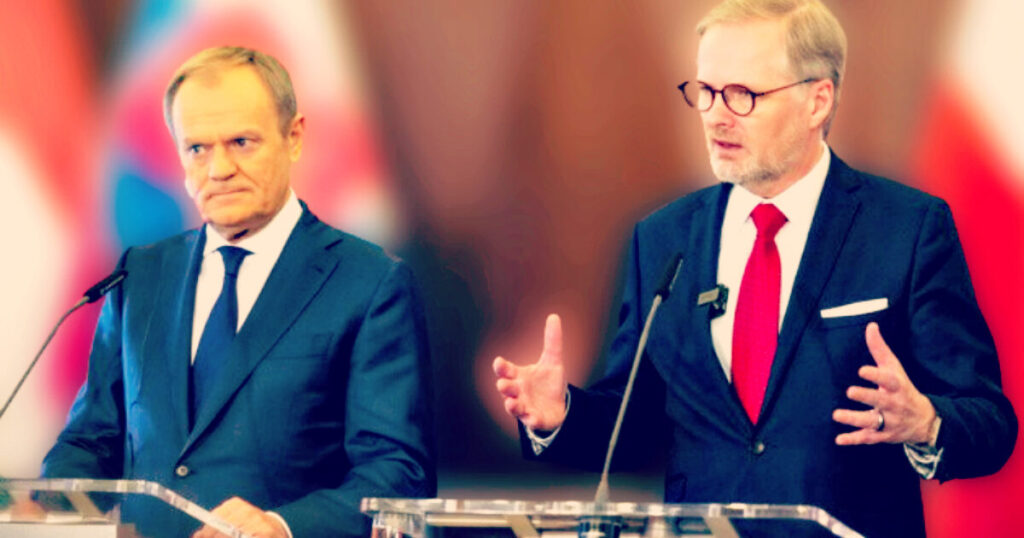The current climate in Europe is one of escalating concern regarding migration and border control, driven by a collective recognition that previous policies of unrestricted mass migration have failed. This sentiment has prompted various nations across the continent, particularly those along the Eastern borders of the European Union, to voice their need for stricter migration controls. Recent discussions between Polish Prime Minister Donald Tusk and Czech Prime Minister Petr Fiala highlight the urgency with which these countries are approaching this issue, as both leaders emphasized the need for the EU to take more decisive action against unauthorized migration.
During their meeting in Prague, Fiala and Tusk expressed their dissatisfaction with the EU’s current asylum framework, which they believe is insufficient to address the complexities and challenges posed by illegal migration. They particularly criticized the recent reforms that were agreed upon by EU member states back in May, arguing that the measures do not go far enough in terms of regulations and enforcement. These criticisms reflect a broader tension within the EU concerning migration policies, especially as countries like Hungary and Poland have consistently opposed mandatory migrant quotas and have taken a stand against the responsibility of hosting migrants.
One of the pivotal points raised during the discussions was the concern surrounding the reinstatement of internal border checks within the EU. Both leaders condemned the reestablishment of such measures, with Fiala pointing out the implications of this policy on the unity and functioning of the EU. This criticism was particularly directed at Germany, which has faced domestic pressure to bolster its borders amid rising extremist attacks and a growing political landscape favoring right-wing parties. Tusk’s and Fiala’s calls for improved protections at the EU’s external borders further underscore their commitment to manage migration more effectively without resorting to internal divisions.
The migration crisis has significantly influenced political discourse across Europe, especially in light of recent parliamentary elections that saw right-wing parties gaining traction in several countries. This shift in political dynamics has forced the German government to respond by implementing stricter border controls, which, in turn, reflects the anxieties of the populace regarding security and immigration. Tusk, who is slated to assume the EU’s rotating presidency in January, is expected to present a comprehensive plan outlining how the EU can better manage migration challenges during his forthcoming address.
In his remarks, Tusk illustrated the dire situation at the Polish border, describing it as reminiscent of a “wartime landscape,” where thousands of soldiers, police, and border guards work tirelessly to maintain security and control against an influx of migrants. This stark imagery serves to highlight the broader implications of illegal migration not only on national security but also on the social fabric of the European Union, as member states grapple with the increasing pressure to respond to this ongoing crisis.
Ultimately, the dialogue among Eastern European nations, exemplified by the collaboration between Tusk and Fiala, signals a potential shift in how the EU approaches migration policy moving forward. With key players vocalizing their concerns and advocating for more robust measures to protect external borders, it is evident that the pressing issue of illegal migration will remain at the forefront of European politics. The forthcoming discussions and initiatives will likely shape the future of migration control and the overall policy landscape as countries seek to reclaim autonomy over their borders while addressing the realities of migration within the continent.

